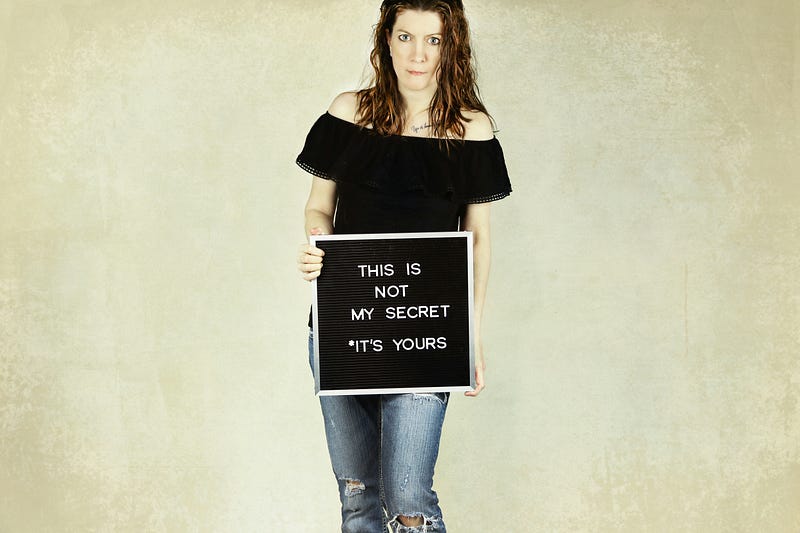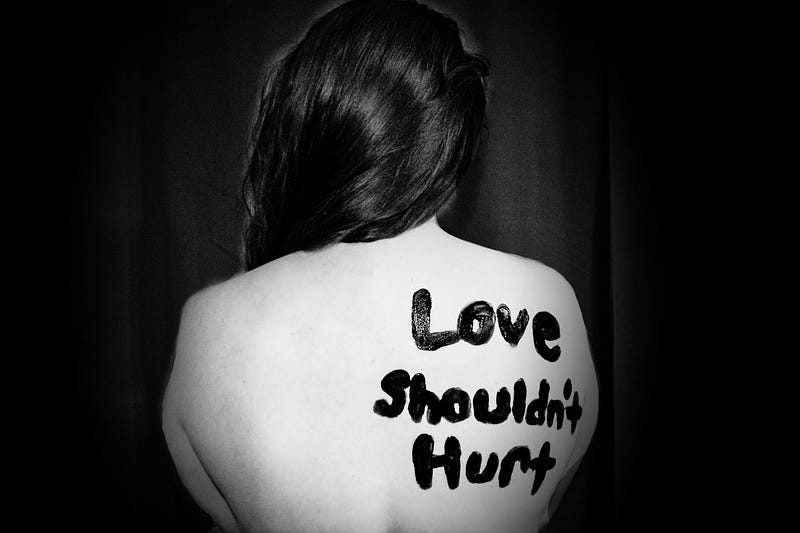Understanding the Lasting Impact of Childhood Abuse: A Survivor's Journey
Written on
Understanding Childhood Abuse
Childhood should ideally be a stage of innocence, exploration, and development. Unfortunately, for many, it transforms into a battleground filled with the trauma of abuse. The repercussions of childhood abuse can echo throughout an individual's life, leaving enduring marks that affect their emotional, psychological, and relational health. This detailed examination will explore the intricacies of childhood abuse and its long-term effects on adult survivors.
Forms of Childhood Abuse
Childhood abuse encompasses various types of maltreatment, including physical, emotional, sexual, and neglectful actions. Such traumatic experiences can arise within families, communities, institutions, or by familiar or unfamiliar individuals. The consequences of childhood abuse can be profound, influencing numerous facets of an individual's development and life path.
- Physical Abuse: Involves causing physical harm to a child, which can include actions like hitting, beating, burning, or using objects to inflict pain.
- Emotional Abuse: Entails verbal or non-verbal actions that demean, threaten, or manipulate a child, resulting in emotional trauma.
- Sexual Abuse: Consists of unwanted sexual interactions or exposure to sexual materials, leading to significant psychological and emotional repercussions.
- Neglect: Refers to the failure of caregivers to meet a child's fundamental physical, emotional, or educational needs, resulting in harm.
The Emotional and Psychological Toll
The impact of childhood abuse on adult survivors can manifest in various emotional and psychological challenges that persist into later life.
- Emotional and Psychological Consequences: Survivors often deal with anxiety, depression, PTSD, dissociation, and low self-esteem, which can significantly affect their mental health and relationships.
- Maladaptive Coping Mechanisms: In an effort to handle the trauma, individuals may resort to harmful coping strategies like substance abuse, self-harm, disordered eating, or avoidance, leading to more complications.
- Relationship Difficulties: Trust issues, fear of intimacy, and communication problems can hinder survivors' abilities to form and maintain healthy relationships.
- Impact on Self-Identity: Childhood abuse can warp an individual’s sense of self, fostering feelings of shame, guilt, and worthlessness, making self-acceptance a challenge.
- Physical Health Consequences: The repercussions extend to physical health, with survivors potentially facing chronic pain, autoimmune disorders, and other health issues linked to trauma.
- Interpersonal Challenges: Survivors may find it difficult to navigate various interpersonal dynamics, including family, friendships, and professional relationships.
The Legacy of Childhood Abuse and WWASP Programs
The enduring scars left by childhood abuse can profoundly influence individuals as they navigate adulthood. The impact on emotional, psychological, and relational well-being is significant. Organizations like the Worldwide Association of Specialty Programs (WWASP) have come under scrutiny for their controversial practices that have contributed to lifelong trauma for many survivors.
Understanding the Role of WWASP Programs
Childhood abuse manifests in various forms, and the controversy surrounding WWASP programs highlights the need for scrutiny regarding their practices.
- Coercive Control: Survivors report experiences of isolation and deprivation within these programs, leading to emotional trauma.
- Physical and Emotional Abuse: Allegations of physical punishment and verbal abuse have surfaced, contributing to lasting psychological harm.
- Lack of Oversight and Accountability: The secretive nature of these programs has made it challenging to ensure participant safety.
The Lifelong Impact on Survivors
Survivors of childhood abuse, particularly those involved with WWASP programs, often face challenges in trust and relationship-building. The trauma inflicted can lead to emotional and psychological struggles, including anxiety and low self-worth.
Despite these challenges, many survivors have found strength in advocacy and community support. Efforts to raise awareness and promote trauma-informed care are essential in preventing future harm and supporting healing. It’s vital to continue to provide resources and understanding to those affected by childhood abuse.

Childhood abuse can leave a lasting impact on individuals, but with support, healing, and advocacy, survivors can reclaim their lives and foster resilience. Share this information with anyone who may need it for educational purposes or with those struggling with similar experiences.
